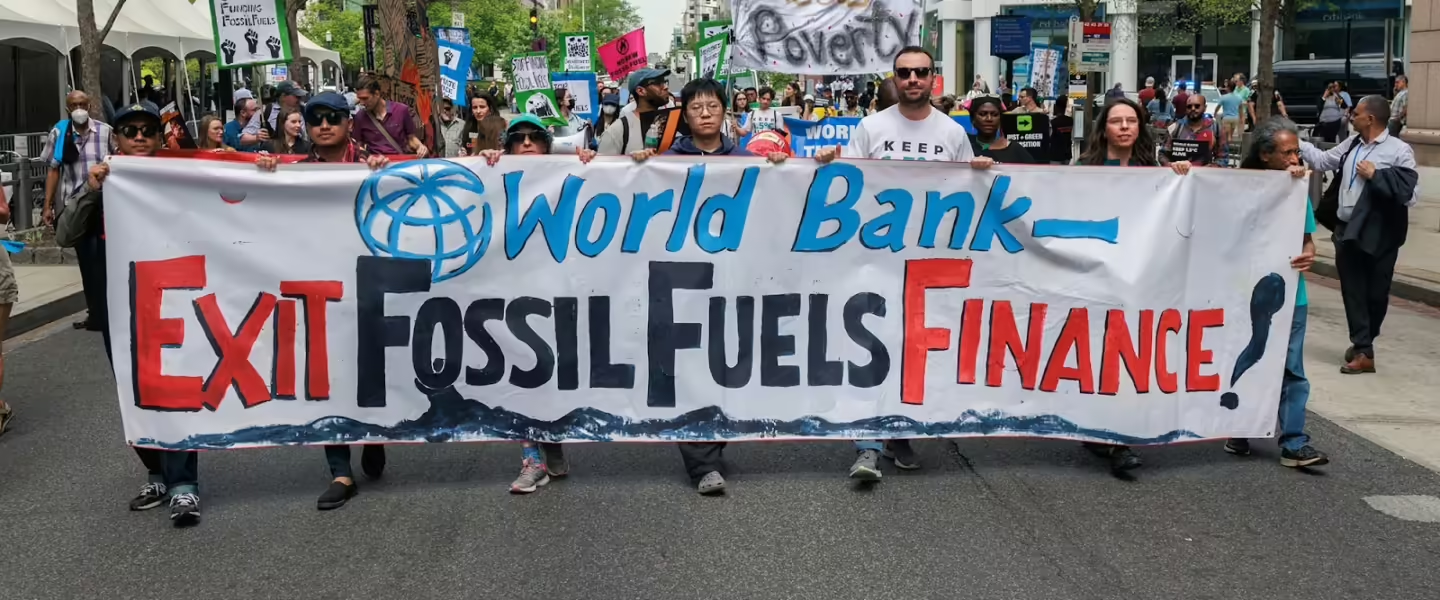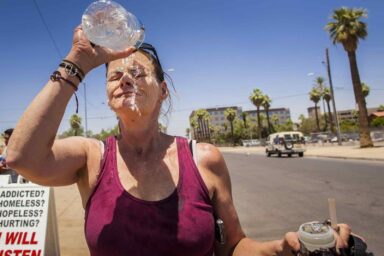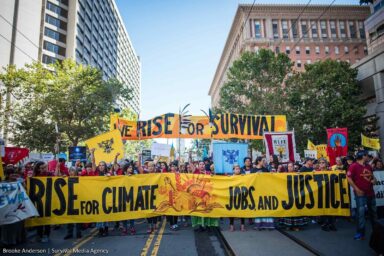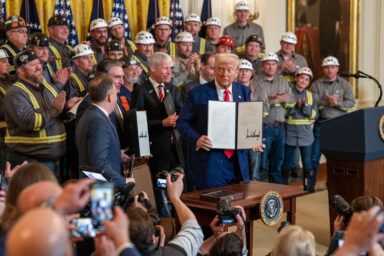Open Letter Demands Global Finance Overhaul to Fight Climate and Debt Crises
“The institutions of world finance have lost their muscle,” wrote more than 100 activists, celebrities, and political leaders. “You can be the leaders who bring them into the 21st century.”
|
Listen To This Story
|
To recognize Earth Week, WhoWhatWhy is running a new piece from our partners at Covering Climate Now each day this week. We are committed to covering the climate crisis and other environmental struggles humanity faces each and every week. Read more of our environmental coverage here.
•
Quoting the economist John Maynard Keynes at the time of the founding of the modern global finance system in 1944, more than 100 signatories last week called on the world’s largest economies to allow the world “to taste hope again” by pouring resources into solving the global debt and climate crises.
Keynes remarked after the historic Bretton Woods meeting in New Hampshire that the summit offered new hope to everyone from “our businessmen and our manufacturers and our unemployed” as world leaders established the World Bank and the International Monetary Fund (IMF).
But with the world now “rocked by conflict, food insecurity, biodiversity loss, and spiraling inflation,” said the signers of an open letter organized by communications and campaign group Project Everyone, the global community needs “another Bretton Woods moment” — one that would correct the “imperfect” system hammered out 80 years ago and live up to the ideals that were centered at the original meeting, including “prosperity as a means of peace” and wealth as a means of serving “the common good.”
The global financial system needs an upgrade.
Read our #DearG20 open letter, signed by over 100 former leaders, activists, academics and artists calling on #G20 Leaders to: Triple the Investment. End crippling debt. Make polluters pay.
Read the letter: https://t.co/8Os6NcvI8R pic.twitter.com/yjI4vuYKPY
— The Global Goals (@TheGlobalGoals) April 15, 2024
The letter states that global inequality is “compounded by the devastation wrought by climate change,” which is disproportionately likely to impact the Global South even as developing countries contribute a mere fraction of the planet-heating emissions of wealthy nations.
The signatories — including International Rescue Committee CEO David Miliband, philanthropist Abigail Disney, and singer and activist Annie Lennox — called on G20 countries to take steps including tripling their investment in the World Bank and IMF, canceling developing countries’ debt to the institutions, and reforming tax codes to ensure big polluters and the wealthiest people contribute to efforts to mitigate inequality.
“This is your chance,” reads the letter, which was released as world leaders met in Washington, DC for the World Bank and IMF’s Spring Meetings. “The institutions of world finance have lost their muscle. You can be the leaders who bring them into the 21st century. You can unlock the colossal public and private investment potential of renewable energy, sustainable agriculture, and climate adaptation.”
Under the status quo, the signatories noted, the United Nations Sustainable Development Goals are “way off track,” with $3 trillion still needed to achieve the objective of a “greener, fairer, better world by 2030,” as agreed to by 193 UN member states.
Project Everyone and its supporters reiterated a demand made by Oxfam International on Monday, April 15, to cancel debts owed by countries in the Global South that are facing rising inequality, as their debt obligations to the IMF and the World Bank have left them unable to invest in education, climate adaptation, housing, and other public services.
“Removing burdensome debt allows countries to invest in their people and their future: in resilience, education, health, and nutrition,” wrote the signatories. “This drives growth and creates string partners to trade with … Each of us stands to gain from stability, lower food and energy costs, and nature protection.”
The wealthiest countries in the world, said Project Everyone, must look to the leaders who met at Bretton Woods and “fulfill their promise: to transform these instruments for peace and prosperity and truly set them to work in our common interest.”
This story by Julia Conley was originally published by Common Dreams and is part of Covering Climate Now, a global journalism collaboration strengthening coverage of the climate story.





